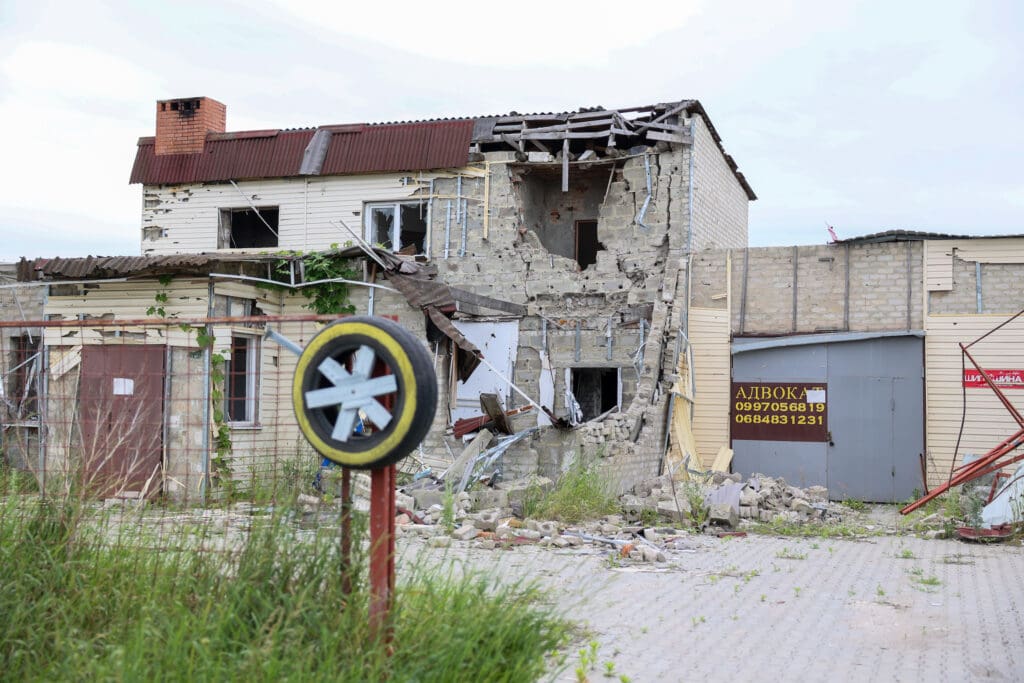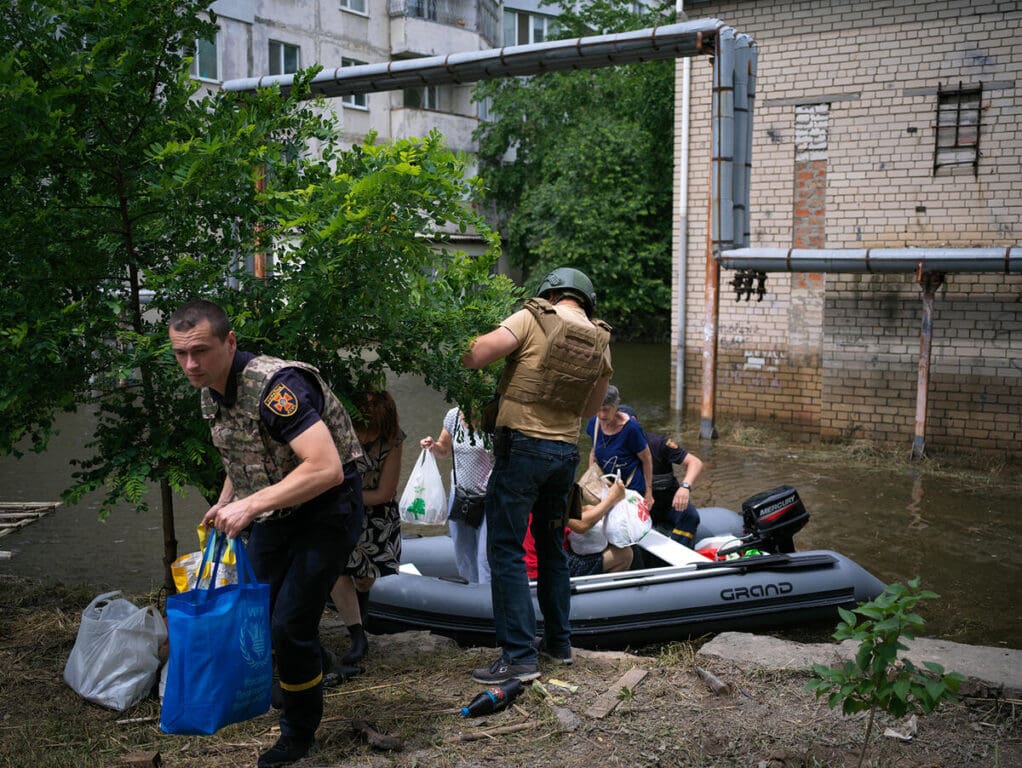Ukraine After 2 Years of War: How the Conflict Has Affected Civilians

February 24, 2024 marks two years since Russia’s invasion of Ukraine. The war has resulted in civilian casualties, a refugee crisis and extreme hunger.
Two years into the conflict, intense fighting continues. Civilians try to go on with their lives but face constantshelling. Displacement, poverty and hunger are persistent, and civilian casualties have increased in recent months with more frequent bombings.
Immediate Effects of the War in Ukraine
After the first year of war, over 8,000 Ukrainian civilians were killed. It caused the one of the fastest population movements since World War II as people were forced to flee from their homes. 6 million people displaced were within Ukraine and another 8 million fled the country as refugees.
By March 2023, 11 million Ukrainians faced hunger – almost a third of the population. In the first year of its emergency response, the United Nations World Food Programme (WFP) delivered 1.3 billion meals, reaching an average of 3 million people each month.
The effects of war on Ukraine after 1 year >
Toll on Ukrainian Civilians After 2 Years of Conflict
The war in Ukraine has been devastating. Over 10,000 Ukrainian civilians have been killed since the war began. Almost 5 million Ukrainians are still internally displaced and close to 6 million are refugees across Europe. Overall, more than one in three Ukrainians is displaced. Many who return to their homes struggle to rebuild their lives as they have run out of money and found their homes reduced to rubble.
The war has also taken a toll on Ukrainians’ mental health. Many live with the constant stress and anxiety of impending missiles and artillery, with 30% of the population suffering from mental health disorders. Anna, a single mother of 3 children, experiences anxiety every time an air raid siren goes off. She fears for her children while they are in school because she doesn’t know where a missile could hit. “All I want is quietness,” she says. Anna is unemployed but is able to provide for her children thanks to cash assistance from the U.N. World Food Programme.

Today, nearly a quarter of Ukraine’s population lives in poverty. About 1 in 5 families are food insecure. The closer to the frontlines families live, the more difficult it is for them to find, afford and prepare food.
Since March 2022, the U.N. World Food Programme has distributed food and cash assistance equivalent to 2.5 billion meals to Ukrainians affected by the war. Every month, we reach 2.4 million people.
On top of emergency food and cash assistance, we also provide school meals to more than 100,000 children across the country to ensure Ukraine’s youth still has access to the nutritious food they need to grow and learn.
Damage to Ukraine’s Infrastructure and Economy
Heavy bombardment has damaged Ukraine’s infrastructure, often cutting off electricity, water and fuel to parts of the country. In mid-2023, the Kakhovka Dam was damaged, unleashing floods that displaced thousands of people and left them without food and drinking water. The U.N. World Food Programme responded within hours by providing critical food assistance.

Agriculture has also been severely impacted. About 6.5-8.5% of Ukraine’s farmland has been abandoned as a result of conflict. Fields are littered with landmines and machinery is destroyed. One in four small-scale farmers is estimated to have scaled back or stopped agricultural work due to the war.
All this has put a strain on Ukraine’s economy, shrinking it by over 30% in the first year. In the second year of the war, the economy did recover by 5.5%, but is heavily reliant on foreign assistance and will take decades to rebuild.
Global Effects of Russia’s War in Ukraine
The war has also impacted people’s food security beyond Ukraine.
Prior to the war, Ukraine and Russia accounted for 30% of global wheat exports and 20% corn exports. The conflict disrupted these exports and immediately drove up the prices of food, fuel and fertilizer.
For the first 6 months of the war, Ukraine’s Black Sea ports were blocked, which prevented the shipment of wheat and grain to countries that needed it. By July 2022, representatives from the United Nations, Russia, Ukraine and Türkiye signed a deal – called the Black Sea Grain Initiative – to reopen Ukraine’s Black Sea ports to food and fertilizer exports.
However, in mid-2023, Russia withdrew from the deal, causing food prices to once again increase and putting millions people in jeopardy of falling deeper into hunger. The U.N. World Food Programme continues to advocate for the safe passage of commercial ships transporting grain and food to and from Ukraine’s Black Sea ports. On February 9, 2024, the first humanitarian shipment of grain left Ukraine for the first time since July 2023 when the Initiative expired.
The U.N. World Food Programme remains committed to providing food to Ukrainians in their time of need as the war enters its third year.
Help us assist families affected by the conflict, both in Ukraine and other countries around the world.




